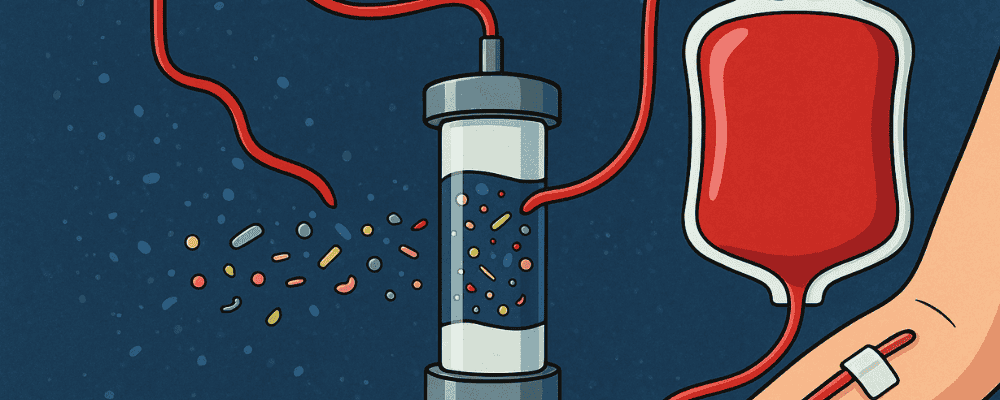BERLIN, July 2, 2025 – A German pilot study has suggested that a common blood filtration procedure known as therapeutic apheresis may be capable of removing microplastic particles from the human bloodstream. The early findings offer a potential new pathway for reducing microplastic exposure, though researchers caution that the results are preliminary and far from conclusive.
Therapeutic apheresis is already used in clinical settings to treat autoimmune disorders, cardiovascular conditions, and long COVID. The procedure involves removing a patient’s blood, separating it into components, filtering the plasma, and then returning the cleaned blood to the body. In this new study, 21 patients with chronic fatigue syndrome underwent two rounds of the treatment. Researchers then analyzed the waste fluid from the filtration process.
Chemical analysis of the waste revealed traces of substances found in plastics, including polyurethane and polyamide. These results suggest that the procedure may capture microplastics, though the study did not quantify how much was removed, nor did it include before-and-after blood comparisons to confirm the efficacy of removal.
Microplastics—defined as plastic particles smaller than five millimeters—have been found in blood, lung tissue, and even the brain. They are associated with a growing list of potential health risks, including chronic inflammation, cardiovascular disease, and neurological conditions. While public awareness has grown, scientific tools to track or remove these particles from the human body remain limited.
The lead researchers emphasized that this was a proof-of-concept study only. The plastic signatures detected in the filtrate could suggest removal, but further research is needed to confirm that particles are actually being extracted from the bloodstream and not merely detected through cross-contamination or environmental exposure during the procedure.
Experts unaffiliated with the study also highlighted the need for larger trials, baseline blood testing, and more rigorous methods to identify and quantify the microplastic particles. Until then, therapeutic apheresis should not be viewed as a confirmed detox solution, but rather as a promising avenue for further investigation.


